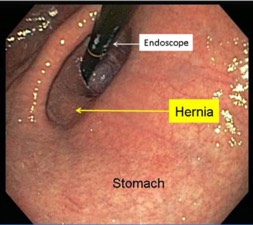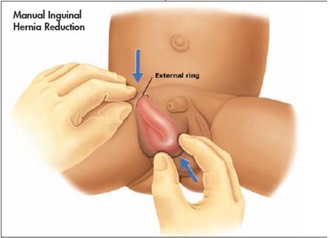Sign up for FlowVella
Sign up with FacebookAlready have an account? Sign in now
By registering you are agreeing to our
Terms of Service
Loading Flow

Treatment
Medication: If you have a hiatal hernia, over-the-counter and prescription medications that reduce stomach acid can relieve your discomfort and improve symptoms. These include antacids, H-2 receptor blockers, and proton pump inhibitors.
Surgery: If your hernia is growing larger or causing pain, your doctor may decide that it’s best to operate. Your doctor may repair your hernia by sewing the hole in the abdominal wall closed during surgery. This is most commonly done by patching the hole with surgical mesh.
Hernias can be repaired with either open or laparoscopic surgery. Laparoscopic surgery uses a tiny camera and miniaturized surgical equipment to repair the hernia using only a few small incisions. Laparoscopic surgery is less damaging to the surrounding tissue.
Open surgery requires a longer recovery process. You may be unable to move around normally for up to six weeks. Laparoscopic surgery has a much shorter recovery time. However, the risk of your hernia reoccurring is higher. In addition, not all hernias are suitable for laparoscopic repair, including those in which a portion of your intestines has moved down into the scrotum.

